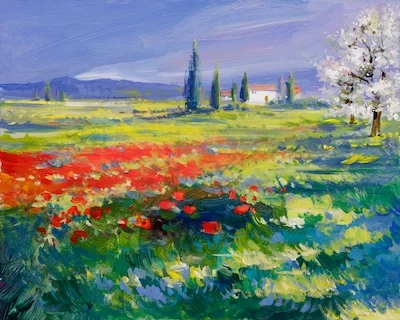The Wellness Complex
Artist Maryam Jafri critiques yoga, meditation and the rest of the contemporary wellness industry.

Maryam Jafri, “Depression,” 2017
installation view from “Automatic Negative Thought,” Contemporary Art Gallery, Vancouver (photo by Site Photography)
Maryam Jafri is a troublemaker.
The New York/Copenhagen-based artist lopes easily across sculpture, video, performance and installation, armed with a needle-sharp impulse to critique. Jafri has taken on issues of copyright, politics, economics, marketing and cultural memory. The wellness industry is a perfect target for her – a big, ripe, over-inflated thing that just begs to be popped.
In Automatic Negative Thought, on view at the Contemporary Art Gallery in Vancouver until Sept. 22, Jafri examines the myriad ways contemporary folk seek inner peace – be it yoga, meditation, acupuncture or odd sexual fetishes.
As she explained before the show’s opening, the disembodied feet in Wellness-Postindustrial Complex, a series of sculptures and photo works she began in 2017, were meant for fetishists. Jafri purchased them at a sex shop, along with a disembodied arm.
Even as one ponders what kind of sexual practices might involve a disembodied arm, the objects in question are on the move, metastasizing from ordinary to strange and then back again. Inside these moments of perceptual shift – unsettling, discomfiting – something fascinating emerges.

Maryam Jafri, “Self-care,” 2017
installation view from “Automatic Negative Thought,” Contemporary Art Gallery, Vancouver (photo by Site Photography)
The show takes its title from a term used in cognitive behavioral therapy. The physical materials of Jafri’s work – crossword puzzles, stuffies, toilet paper, yoga mats – are familiar enough. But what she does with these materials, reconstituting readymade objects into something new and often deeply strange, offers a short, sharp shock to the system.

Maryam Jafri, “American Buddhist,” 2016
installation view from “Automatic Negative Thought,” Contemporary Art Gallery, Vancouver (photo by Site Photography)
American Buddhist is one such experience. The 2016 work, part of Jafri’s series, Meditation Altars, uses a public-domain video created by the American military that features the army’s first Buddhist chaplain, Thomas Dyer, leading a meditation practice for American soldiers in Iraq. Heaped around the monitor are stuffed toy Buddhas and fake plastic flowers. The video features Dyer, dressed in military garb and sitting cross-legged, talking about peace and tranquility in the middle of a war zone. The concept is horrific, but also darkly funny.

Maryam Jafri, “Where We’re At,” 2017
installation view from “Automatic Negative Thought,” Contemporary Art Gallery, Vancouver (photo by Site Photography)
Another cheerful savaging occurs in Where We’re At, a wall-sized crossword puzzle that you can actually solve. The sculpture took inspiration from a collection of six books put together by the New York Times following the 2016 election that put Donald Trump in the White House. The list was supposed to help people make sense of what had just happened.
It didn’t really do that, so Jafri added her own titles, including The Handmaid’s Tale, by Margaret Atwood; Anthem, by Ayn Rand; Nancy Isenberg’s White Trash: The 400-Year Untold History of Class in America; P.T. Barnum’s The Art of Money Getting; a book on mindfulness by Jon Kabat-Zinn; Denationalisation of Money, by neo-liberal economist Friedrich Von Hayek; and Ibn Khaldun’s Muqqadimah, a 14th-century book about economics. An altogether more useful selection, but maybe still insufficient to make sense of the times we’re in.

Maryam Jafri, “Mariam Jafri vs. Maryam Jafri,” 2019
installation view from “Automatic Negative Thought,” Contemporary Art Gallery, Vancouver (photo by Site Photography)
The artist does not spare herself from eviscerating examination. Mariam Jafri vs. Maryam Jafri, a room-sized video work commissioned by the Contemporary Art Gallery and Austria’s Taxispalais Kunsthalle Tirol, details Jafri’s battle with Getty Images over copyright issues.
The work was inspired by her experience at the 2017 Frieze Art Fair in London, after a photographer from Getty Images shot photos of her work. The images, complete with a misspelling of Jafri’s name were copyrighted and marketed as stock photos, available for purchase on the Getty website. Some artists might have spontaneously exploded, but Jafri took it as leaping-off place to examine the swirling morass of issues around ownership and authorship in one vertigo-inducing swoop.
It isn’t the first time Jafri has tangled with Getty Images. In a previous work titled Getty vs. Ghana, she documented a struggle between the country and the company about who actually owns (and controls) archival images of Independence Day ceremonies. As a narrator explains the sequence of events in a clipped British accent, the image cuts suddenly to a talk Jafri gave at the Massachusetts Institute of Technology, and you realize that the voice in the video isn’t Jafri, but a generic version purchased for the production. It’s a playful, mischief-making moment with a razor-sting of humour.
Because sometimes a lie tells the truth. ■
Automatic Negative Thought is on view from July 5 to Sept. 22, 2019 at the Contemporary Art Gallery in Vancouver.
PS: Worried you missed something? See previous Galleries West stories here or sign up for our free biweekly newsletter

Contemporary Art Gallery
555 Nelson Street, Vancouver, British Columbia V6B 6R5
please enable javascript to view
Tues to Sun noon - 6 pm
